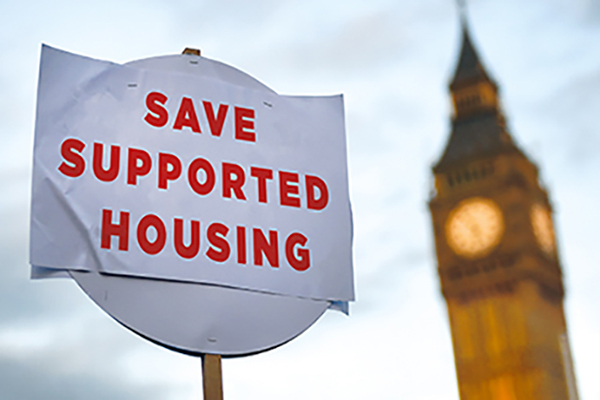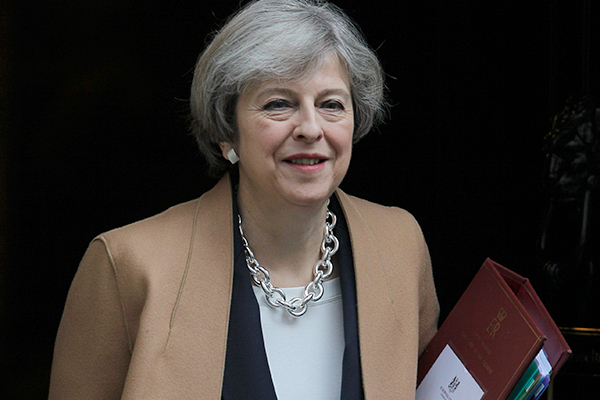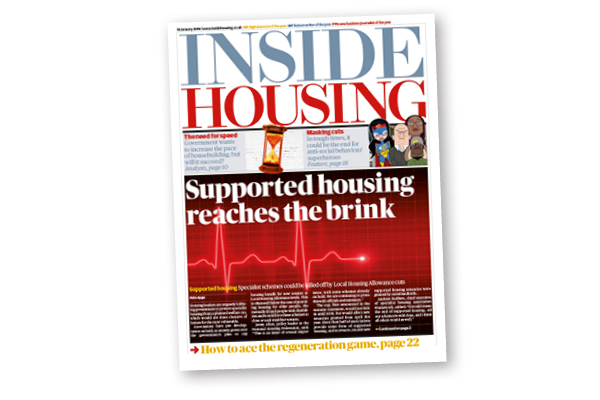A two-year U-turn: the rise and fall of the LHA cap
A timeline of the Local Housing Allowance (LHA) cap’s journey from George Osborne’s brainchild to the policy’s abandonment by Theresa May
What has Theresa May announced?
The prime minister today told parliament: "We will not apply the Local Housing Allowance cap to supported housing – indeed we will not be implementing it in the wider social housing sector, and the full details will be made available when we publish our response to the consultation"
What was the policy?
The government had planned to cap social housing tenants’ benefit at Local Housing Allowance rate, which are used to set benefits for tenants of private landlords. This would have caused huge problems for supported housing providers – whose rents pay for enhanced services and are well above private rates in many areas.
Under-35s – only able to claim the rate for a room in a shared house – would also have struggled to find social housing, as would tenants in areas where LHA rates are particularly low. Over two years, the social housing sector has lobbied against the plan – resulting, finally, in today’s U-turn.
How the LHA cap policy unravelled
November 2015: As a footnote to his Autumn Statement, chancellor George Osborne announces housing benefit will be capped at LHA rates from 2018. The implication of this is not immediately clear.
December 2015: As it becomes clear that the policy will affect supported housing schemes, care providers warn that the policy will “kill off” supported housing. On Christmas Eve, Labour releases analysis showing the policy could affect 440,000 people nationwide.
January 2016: In response to an Inside Housing survey, 95% of supported housing providers said they would be forced to wind up schemes if the policy was introduced in full. The government announces a review of supported housing funding at the end of the month, promising more detail by spring.
March 2016: The government pushes back the implementation of the LHA cap from tenancies starting in 2016 to those beginning in 2017, but this fails to provide enough certainty for the sector to start building out schemes they have paused due to the uncertainty.
July 2016: With schemes still frozen, the government extends the exemption for supported housing indefinitely while it works on a long-term funding solution, but providers warn they still do not have enough certainty to restart building work. Inside Housing research reveals 73% of housing associations would be less likely to house under-35s if the policy were to go ahead.
September 2016: The government reveals its new funding plan: councils will be given top-up funding pots to cover the shortfall between rents and the new housing benefit rates supported housing tenants can claim. Providers express fears that this funding does not provide certainty and would be vulnerable to budget cuts.
November 2016: Ahead of the Budget, the government announces the cut will apply to existing tenants on Universal Credit, rather than just new tenancies. The sector warns that this will create a bedroom tax-style scenario, with tenants struggling to find the money to cover their rent.
March 2017: Research by the Chartered Institute of Housing reveals LHA rates have slipped so far behind actual rents, under-35s have no access to housing through benefits in many areas. Meanwhile, a top civil servant admits that the only reason the government is using LHA to set housing benefit is “they are already there”.
May 2017: Communities and Local Government and Work and Pensions select committees publish seminal reports calling on the government to ditch LHA as a means for setting benefit in supported housing.
August 2017: The National Housing Federation releases research showing housing associations have slashed planned supported housing developments by 85% due to the uncertainty over future funding.
October 2017: Facing pressure from Labour and crumbling support for the policy on her own benches, Ms May makes the surprise announcement that the policy is to be scrapped outright: LHA rates will no longer be used to set housing benefit in the social housing sector. The government promises to set out plans for supported housing funding next week














